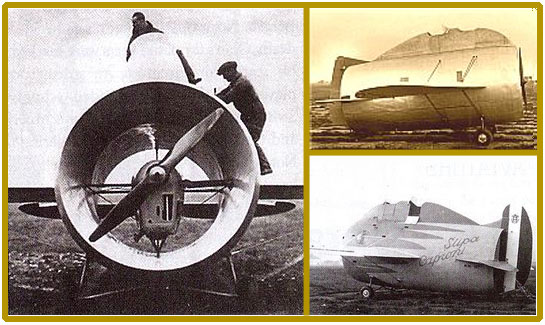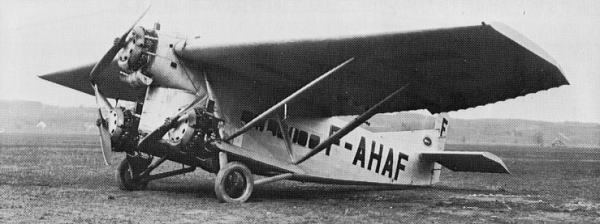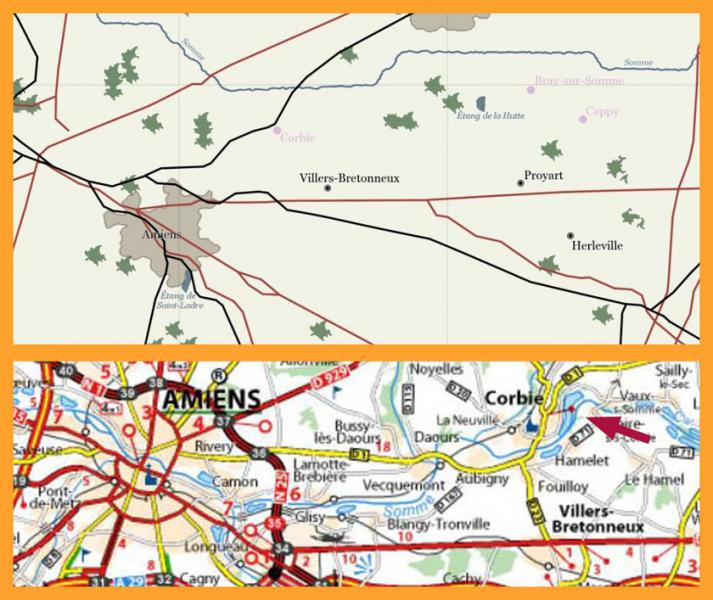-
Posts
2,637 -
Joined
-
Last visited
-
Days Won
1
Content Type
Profiles
Forums
Gallery
Downloads
Store
Everything posted by Hauksbee
-

The World's Ugliest Airplane...
Hauksbee replied to Hauksbee's topic in WOFF UE/PE - General Discussion
Good point jeanba. Ugly airplanes matched only by their goofy names. -

Let's have a BOC rollcall...
Hauksbee replied to Hauksbee's topic in WOFF UE/PE - General Discussion
The Dancing MJ Leaf returns! Good to see you Parky. -

The World's Ugliest Airplane...
Hauksbee replied to Hauksbee's topic in WOFF UE/PE - General Discussion
There goes one now! Fearing that I may have been a bit harsh on the poor Stipa, I decided to look up what 'Stipa' meant. Turns out that it was from Luigi Stipa, a designer for Caproni. The plane we see here was a test bed for ducted fan technology. It actually flew, but achieved no more than 81 mph in flight due to excessive aerodynamic drag. It is reported to have had a short take-off, a very low landing speed and so much directional stability that it was actually difficult to change direction. The ducted fan was to be used in a large flying wing, but it never happened. . -

The World's Ugliest Airplane...
Hauksbee replied to Hauksbee's topic in WOFF UE/PE - General Discussion
Most French aircraft are odd. It is strange that the French, renown for taste and style, should go off the tracks so badly when it came to designing airplanes; objects that would seem to cry out for sleek lines and streamlining. ps: 'Love the Caproni Stipa. I think the strategy there was for the enemy to laugh themselves to death. -

Starting engines on Handley-Pages and Gothas
Hauksbee replied to JimAttrill's topic in WOFF UE/PE - General Discussion
...an 'erk'? -

A Sight my Father feared - Mossie Low Pass
Hauksbee replied to Olham's topic in WOFF UE/PE - General Discussion
An achingly beautiful airplane...and fast. The Mossie (or is it Mozzie...?) debuted on the same day as the prototype Spitfire. A large group of top-Brass had turned out to see the candidate for the new fighter. As the Spit came screaming across the field in a low level pass, it was joined by a Mossie that held position with it all the way. -
After reading jeanba's post about needing some French two-seaters, I started poking about looking at Farmans. None of them had much aesthetic appeal, but the one below, the F.120 Jabiru, has got to be a strong contender for "World's Ugliest". .
-

Let's have a BOC rollcall...
Hauksbee replied to Hauksbee's topic in WOFF UE/PE - General Discussion
"Speckled Hen all 'round, barkeep! Prosit! -

Let's have a BOC rollcall...
Hauksbee replied to Hauksbee's topic in WOFF UE/PE - General Discussion
The bar is open. First round on me! -
Much less than you might imagine. So much so, that you might give up imagining altogether.
-
Yes, it would. I have not given up on my desire to create WOFF Mods, Lou. My move is over and I am now in DeForest, WI (just spittin' distance down the road from Madison). Time to get back out on Craig's List and find a tutor for my Gmax/Modding problems. Speaking of the landscapes being a leftover from CFS3, is it possible to change them, or, is it a part of 2% kernel of the CFS Engine that cannot be modified?
-

Things looking grim at RoF...
Hauksbee replied to Hauksbee's topic in WOFF UE/PE - General Discussion
Gasp! Next it'll be there's no Santa Claus... -
Somehow I just knew this was going to be an e-banana. (the old 'loaves and fishes' dodge.)
-

Things looking grim at RoF...
Hauksbee replied to Hauksbee's topic in WOFF UE/PE - General Discussion
Why am I not surprised? Well, actually I am surprised...just asleep at the switch. -
Yep, there was lamentation at the BOC that night. But, now that we've prised you out of your self-inflicted exile, give us your thoughts on the Snipe. I know you had it up on a few occasions. If I recall, you posted one of the first "Pilot and Fence" pictures. Does the Snipe satisfy?
-

Things looking grim at RoF...
Hauksbee replied to Hauksbee's topic in WOFF UE/PE - General Discussion
Agreed. But, in my case, it's also the Russian planes. I never developed a taste for them. ps: in your signature Camel picture, isn't that the BOC in the background? -
Hard pressed, and good luck to y'. When the Dev's are wearing their "Historical Details Hats" they are formidable. But what I always wondered about is why the WOFF lanscape doesn't match up with reality. When WOFF v.1 came out I hoped to haunt Corbie/Vaux-sur-Somme in hopes of finding MvR on his last mission. I saddled up a Camel and flew south from Bertangle looking for the Somme figuring that then I'd turn east and follow it. I flew severals times, once for over an hour. Never found it. I knew Corbie lay to the east of Amiens so I tried flying east. Again; no go. When RAF_Lou created his maps, I saw why. In reality the Somme runs through Amiens. In WOFF it passes north of the city. In reality, the Somme twists and meanders because Flanders and Picardy are so flat. In WOFF, the Somme is mainly straight lines. Is it possible the the Dev's did not feel it necessary to consult any maps for WOFF landscapes? .
-

"Finis - The End of the Luftwaffe"
Hauksbee replied to Olham's topic in WOFF UE/PE - General Discussion
Turing should have been hailed as a National Treasure, a war hero on a par with Bernard Montgomery, seeing as Monty was conducting his war with Alan's intel. -

"Finis - The End of the Luftwaffe"
Hauksbee replied to Olham's topic in WOFF UE/PE - General Discussion
You're spot on, Hellshade. Most everybody agrees that Fighter Command was on the ropes just before that 'unfortunate incident' of bombing London. Winston Churchill described that night as the one that lifted his spirits most during the Battle of Britain. As he and his staff stood on the rooftops watching London burn, he said he knew that this would bring America in. England's fortunes had just taken a turn for the better. Britain's tit-for-tat bombing of Berlin was the perfect stroke to drive Hitler into a rage. Fighter Command was off the hook. The problem with the Luftwaffe was that it was always seen as an adjunct to the Wehrmacht. It's fighters would attack enemy airbases and establish air superiority. The ground troops would advance. When they hit a hotly defended point, they'd pause and call in the Stukas to destroy the enemy position and the Wehrmact would pour through the hole. Bombers were for knocking out airfields, rail hubs, truck convoys, etc. It was strictly tactical, support-the-ground-troops thinking. There was no long range strategic thinking. The same held true for the Navy. The Nazis hadn't a clue about naval warfare. -
Well, it's been a week since we decided to breath new life into the old airfield. I'd say that it's proceeding nicely. So, Jim, who wins the banana?




